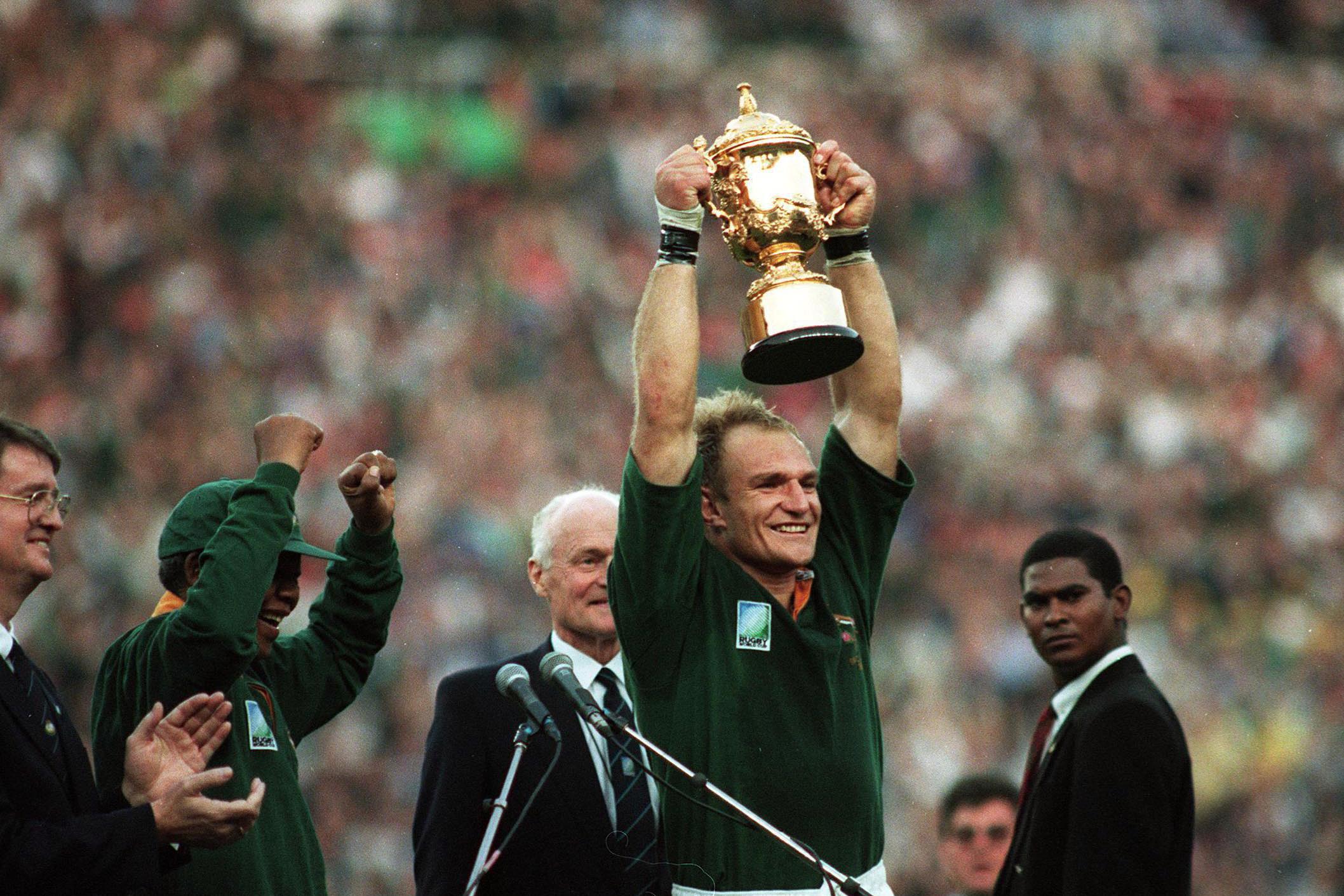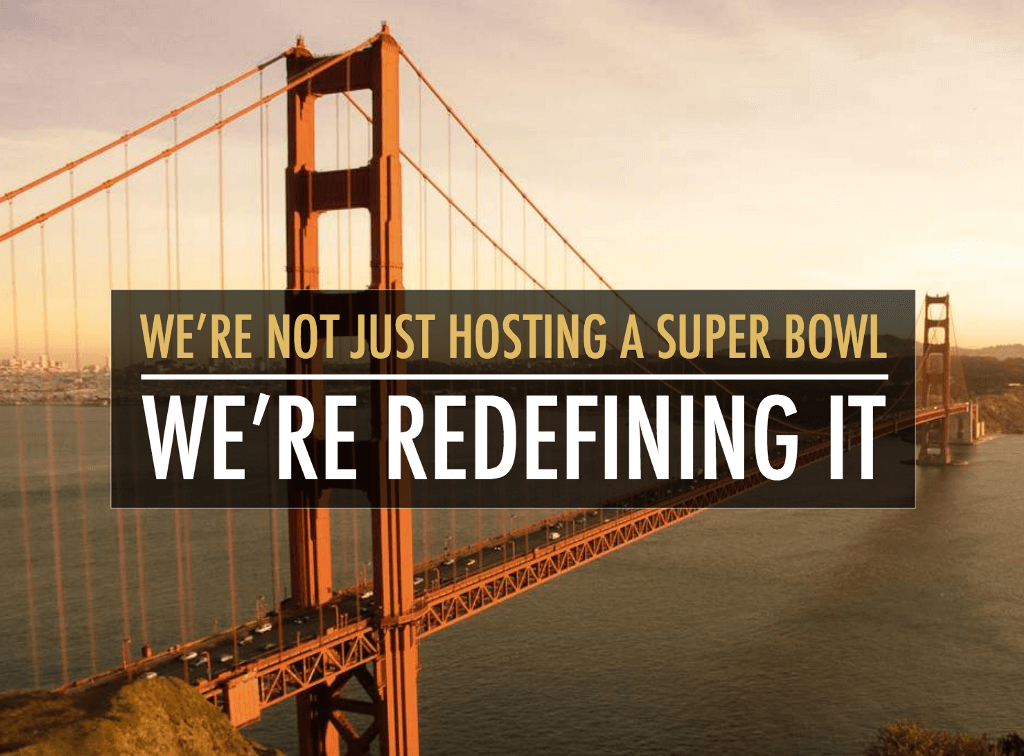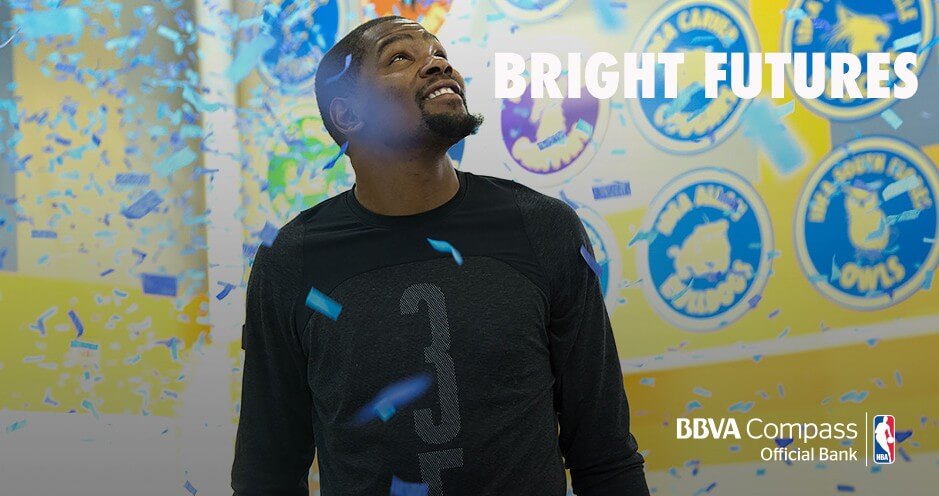
By
![]() Team Hashtag
•
6 min read
Team Hashtag
•
6 min read
February 1, 2017

I lived in South Africa in the 1990’s at a time where the divide between the haves and have nots was more marked than you can imagine.
It was also a time in which sport played a central role in the lives of everyone, irrespective of which side of the divide they found themselves. Building a sports marketing business through the transition from minority to majority rule at this time, not surprisingly, played a foundational role in how I now view the world.
The 1995 Rugby World Cup was a pivotal moment for me along my journey as I witnessed first hand the role that sport can play in making the world a better place. President Nelson Mandela’s instincts around the opportunity to tap into fan passion and pride around a major sports event to heal an otherwise divided nation was nothing short of brilliant and set up the “Rainbow Nation” for the years of success that it subsequently enjoyed.
President Mandela’s opening remarks at the first Laureus World Sports Awards say it all: “Sport has the power to change the world. It has the power to inspire. It has the power to unite people like little else does. It talks to the youth in a language they understand. Sport can create hope where once there was only despair.
Inspired by my Rugby World Cup experience, and the expectations of the ruling ANC party that business should play a significant role in helping the country to make up for lost time during apartheid, we made a special effort at my agency Octagon South Africa — one of the leading agencies in the Octagon Worldwide network — to incorporate a “development” component into every sponsorship that we managed for our corporate clients. These mainly involved opportunities for South Africa’s marginalized communities to gain access to sport and inclusion in society generally. And what we learned during this time was that this approach amplified the returns enjoyed by everyone involved — the sponsor, the rights holder and the community. We learned that doing good through sport made a real difference in the communities where our clients operated and helped them in the process to become relevant contributors in the new South Africa.
Fast forward to 2017 and few will deny that a move to purpose is now underway across the world as corporations try to remain relevant to a growing number of their customers that expect business to stand for something more than just making profits.
While this expectation exists across a broad cross section of the global community, 2.5 billion people by some estimates, it is particularly strong amongst younger people whose influence in society and on business — what they buy, where they work, what they invest in, what they promote — has gathered tremendous momentum over the last 5 years.
And corporations are quickly finding out that doing good is good business as more and more examples of purpose-full corporations out-performing their competitors (and the market) start to hit the headlines. There are, for example, now over 2000 corporations registered as certified B Corporations, corporations committed to doing good while they do well through a triple bottom line approach to how they do business.
It was these collective insights that informed our decision at the Super Bowl 50 Host Committee — where I was Chair of the Sustainability Committee and Lead Sustainability Advisor — to build our strategy for the mega-event around the central purpose of leveraging it as a platform that would improve the lives of young people in the Bay Area.
The Host Committee delivered Super Bowl 50 as the “most shared, most participatory and most giving Super Bowl ever…all delivered in a “net positive” way — socially, environmentally and economically.” The event was the most successful in history from a commercial, engagement and impact perspective directing $15M of corporate funding to local Bay Area organizations aligned with their purpose.

In the process, we like to think that we delivered a transformative event with Super Bowl 50 that will change the way that future Host Committees go about hosting the Super Bowl and other mega-events. It is still in the early days, but our example is being followed by both the NFL and future Host Committees, and I would not be surprised to see either Minnesota or Atlanta meet our challenge and raise the bar even further with Super Bowl LII and LIII respectively.
The business of sport, however, seems to have been slow to react to this move to purpose which is puzzling given the industry’s appetite for doing well. It seems that everyone in the sector has been so distracted by the next piece of shiny technology, building the next mega-stadium and selling seats and tickets that they haven’t been paying attention to what their fans and sponsors want.
While the business of sport does do good in the community, they still seem to be caught up in the traditional “1%” philanthropy or CSR model and have yet to understand the opportunity to embrace purpose as a key strategic business driver and in the process drive multiple benefits for their organization and the community on whose well-being they rely.
The fact that not a single sports team, league, event or venue has become a certified B is indicative of how far the business of sport has fallen behind.
Get Hashtag Sports in Your Inbox
Learn how to connect with the next generation of sports fans
Things are, however, starting to change, driven in the main by examples like Super Bowl 50 and expectations of the corporate sector who wield great influence over sports rights holders given the importance to the business of sports of their sponsorship dollars. More and more purpose-full corporations are now starting to look for ways to activate their purpose through their sports sponsorship programs, and rights holders that aren’t able to help them authentically do so will start to lose out.
Per the 16th annual IEG Properties Sponsorship Decision-Makers Survey, sponsors listed “Showcase Community / Social Responsibility” as the third most important factor when evaluating sponsorship properties. 38% of sponsors scored this factor a 9 or 10 in this survey which is significant given that the factor did not appear amongst sponsors top ten objectives in the 2015 survey.
This move towards purpose is further highlighted in PWC’s 2016 US Sports Outlook report. PWC projects that brand sponsorship of community relations or foundation activities will increase from 1% to 5% of total sport sponsorship spend in the USA by 2020 — almost $1B — as the industry’s brand partners face increasing stakeholder scrutiny of marketing and hospitality spend resulting in alternate methods of engagement targeted to preserve relationships and brand affiliation with sport.
Examples of corporate led purpose-full sponsorship are starting to emerge.
One of my favorite purpose-full sponsorships is the Sports Matters initiative currently being promoted by Dick’s Sporting Goods with an eye on “saving youth sports”. This is an authentic, integrated and relevant commitment from Dick’s that demonstrates what’s possible when a purpose-full approach is taken to leveraging the power of sport to “do good and do well.”

Another is BBVA Compass’ “Bright Futures” purpose activation platform. BBVA is activating their corporate purpose of “banking on a brighter future” through a $30M annual partnership with the NBA and high profile athletes through an initiative entitled “Bright Futures.” It’s a great example of a sponsorship being expected to deliver more than tickets, hospitality and signage, as is the norm.
Other sports focused purpose activation platforms developed by State Farm, P&G — Always, Humana, USAA and DOW provide further evidence of the growing interest amongst corporate sponsors in this space.
My experiences over the years have come full circle to inform the work I now do through my new purpose-full agency Purpose + Sport which we launched last year. We’ve assembled an awesome Advisory Board and are already working with a number of leaders in the industry — rights holders and corporate sponsors — who have now seen what’s possible when you embrace purpose as a management philosophy.
In the case of the property owners we’re working with, we’re helping them to define, express and activate their organizations purpose so that they too can do good and do well. And for the corporate sponsors we’re working with, we’re helping them to activate their purpose across their sponsorship portfolios in a meaningful way that drives both community and business outcomes. It’s an exciting time.
At some point in our lives we come to what is best described as an awakening. Olympic Gold medalist Steve Mesler explains his journey.
Read More
My wish, through all of this, is that the business of sport moves beyond the 1% philanthropy and CSR model to embrace purpose as a management philosophy and in the process redefine sports role in society as a whole and importantly in a contributing towards developing a sustainable future for us all. Given all the uncertainty that exists in the world, there isn’t a better time than now for the business of sport to stand up and take a leadership role in this space, to do good and do well. The fans expect it and corporations are looking for partners to help them activate their purpose.
If President Nelson Mandela were still with us today he would be grateful to know that the example that was set around the Rugby World Cup in 1995 through the theme of “sport for good” has played some small part in inspiring the move to purpose that is at last underway across the business of sport.
No doubt he would also remind us that “it always seems impossible, until it’s done.”

Neill Duffy is Chief Executive and Founder of Purpose + Sport, a purpose-full sports marketing agency based in San Francisco. Neill has held numerous senior leadership positions over the last 20 years advising major corporations and sports events on their business, commercial and engagement strategies in sports including as President Octagon EMEA, CMSO 34th America’s Cup and Chair of the Super Bowl 50 Sustainability Committee. Reach out to Neill at Neill.Duffy@PurposeandSport.com
Purpose + Sport is all about inspiring the business of sport to do good and do well which they do by enabling their partners — rights holders and sponsors — to embrace purpose as a key strategic business driver for their organizations using their proprietary “net positive” methodology and their purpose-full advisory, commercial and engagement solutions.
To explore more about social responsibility across sports in the digital age, join us at the annual Hashtag Sports conference.